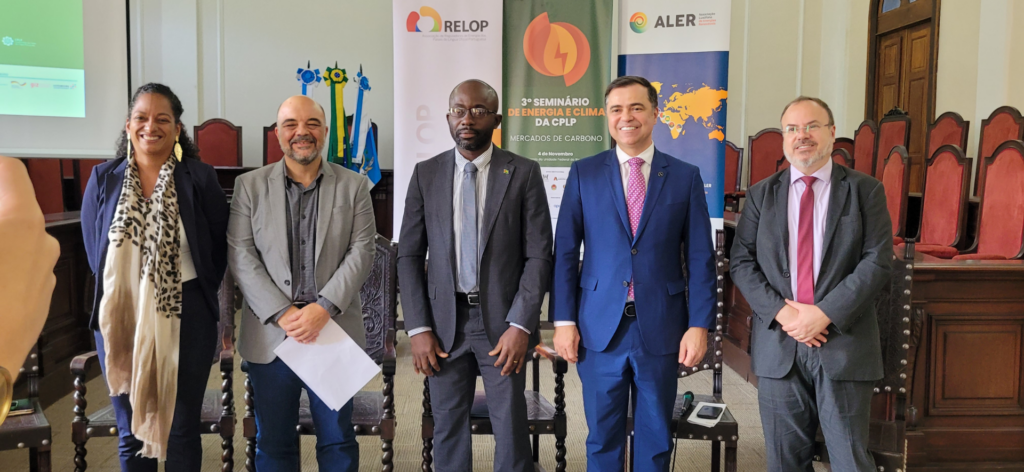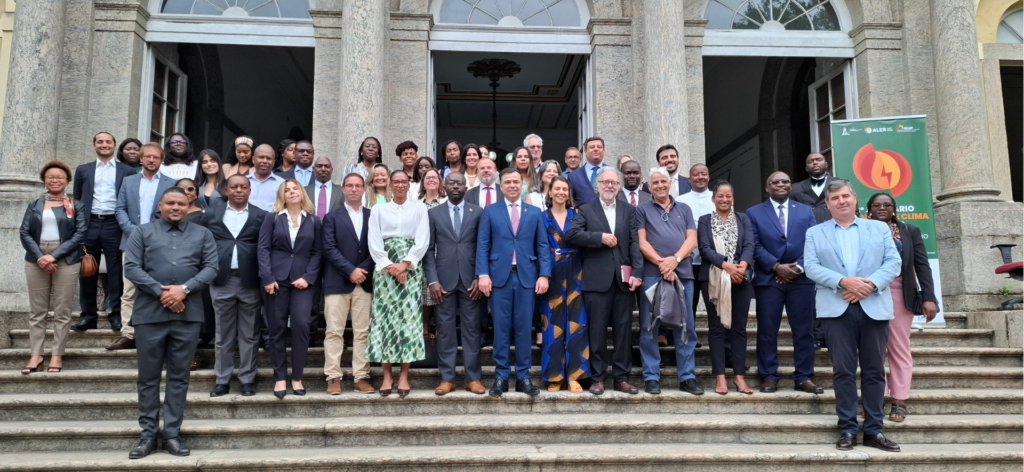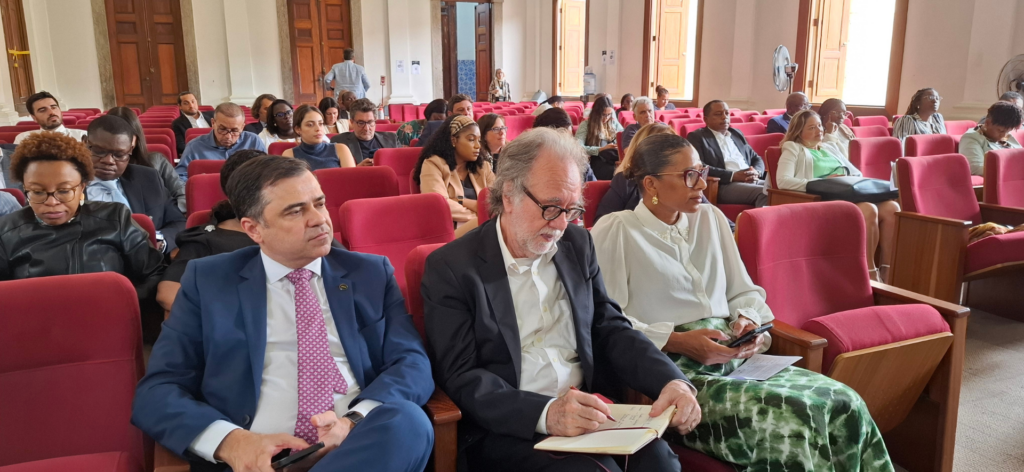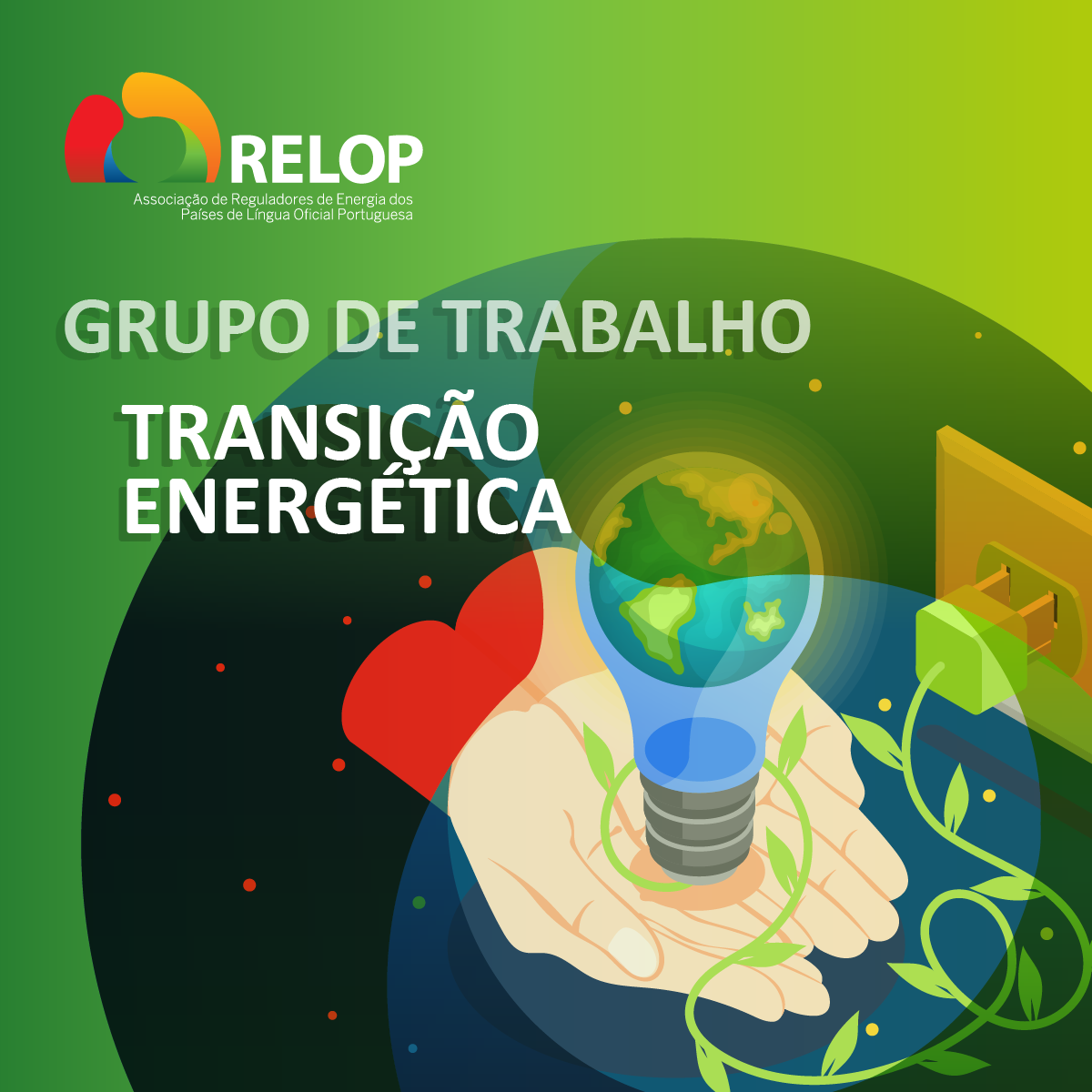Governments and Organizations Discussed Energy Transition and Carbon Markets at the 3rd CPLP Energy and Climate Seminar
After Cape Verde, the CPLP Energy and Climate Seminar Series brought together governments and organizations in Brazil to discuss energy transition and advancements in carbon market regulations among CPLP member states. The third seminar, held on November 4 at the Institute of Economics of the Federal University of Rio de Janeiro (UFRJ), was promoted by the Government of São Tomé and Príncipe, which holds the rotating presidency of the Community of Portuguese Language Countries (CPLP). It was organized in collaboration with the CPLP’s Advisory Observers’ Thematic Energy Commission, coordinated by the Lusophone Renewable Energy Association (ALER) and the Association of Energy Regulators of Portuguese-Speaking Countries (RELOP).
Mayra Pereira, President of ALER, opened her speech by cautioning that “in African countries, the issue of carbon markets is still in its early stages.” According to her, while most countries have environmental policies and laws, legislation around carbon markets is still being developed. Although ecological, social, and cultural diversity links Angola, Brazil, Guinea-Bissau, Equatorial Guinea, Mozambique, Portugal, São Tomé and Príncipe, and Timor-Leste, challenges remain in establishing carbon markets. Pereira emphasized the need to “view through the lens of Afrofuturism” to reimagine Africa and facilitate its access to these markets. She highlighted the importance of generating knowledge and sharing experiences collectively. “In Cape Verde [at the 2nd CPLP Energy and Climate Seminar], we initiated this principle of joint action,” she noted. Discussions at that seminar underscored the value of a united Portuguese-speaking Africa, with Portugal and Brazil serving as anchors for partnerships.
Sandoval Feitosa, President of RELOP, also emphasized the significant roles of Portugal and Brazil in integrating Portuguese-speaking countries into carbon markets. He pointed out that Portugal’s strategic location in Europe provides access to financing mechanisms that promote renewable energy development in Lusophone countries. Additionally, Brazil is a global reference point due to its renewable energy production potential, especially in hydropower, solar photovoltaic, and wind energy. “We have developed legislative mechanisms to incentivize renewable energy production, which, combined with a robust consumer market, creates a perfect ecosystem,” Feitosa said. He stressed the importance of knowledge sharing among nations with similar cultural roots. “Knowledge is useless if it remains isolated. (…) I strongly believe in the union of countries,” he concluded.
Gabriel Makengo, Director of Energy at São Tomé and Príncipe’s Ministry of Infrastructure and Natural Resources, highlighted that the carbon market is “not just an economic tool but an opportunity to promote sustainable development, align efforts against climate change, and ensure a prosperous and more equitable future.” Makengo described it as a strategic and collaborative response, enabling countries and companies to offset their emissions by investing in mitigation projects, such as clean technologies. “In the CPLP space, several members possess vast natural resources that play a critical role in carbon capture, especially through forests, soil, and marine ecosystems,” he said. These resources “are strategic assets that can be monetized through carbon markets, generating revenue to fund sustainable development and climate adaptation aligned with G20 guidelines,” he added. Makengo stressed that CPLP could play a vital role in policy coordination, sharing best practices, and technical support. Creating a common platform for carbon credit negotiation and strengthening scientific cooperation could be essential steps forward.
Carlos Alexandre Pires, a public policy and government management expert at Brazil’s National Secretariat for Climate Change, reminded attendees that Brazil had pioneered its energy transition during the 1970s and 1980s, albeit under different circumstances from today’s climate change-driven context. “There still persists, to some extent, (…) this narrative that Brazil has already undergone its energy transition while the rest of the world debates theirs,” he remarked. Although Brazil’s reality differs from other countries, Pires argued for addressing issues such as inequality and climate justice in the transition. “Our energy transition must be shaped to our advantage,” he emphasized. Given Brazil’s social and economic challenges, he said it is crucial to transform the transition into an opportunity for growth and ecological and energy transformation. Moreover, Pires called for making climate change and energy transition language clearer and more accessible to ordinary citizens. “There’s a whole jargon that needs to be addressed” so that “the citizen most vulnerable to climate change knows exactly what they need to do,” he concluded.
At the 3rd CPLP Energy and Climate Seminar, the main outcomes of the G20 Energy Transitions Working Group were highlighted, including the establishment of ten principles for a just and inclusive transition (aligned with the UN’s SDG7 and the first Global Stocktake instituted at COP28) and the creation of a global energy planning agreement for implementing more efficient and sustainable policies. Additionally, discussions were raised on net-zero emissions, deforestation, climate change adaptation, energy justice, and dignified access to energy. A roundtable followed, focusing on carbon market regulation in CPLP countries, particularly Angola, Brazil, Mozambique, and Portugal. The session shared legislative developments in regulated markets aimed at achieving carbon neutrality targets, guidelines for legally secure carbon certification, and examples of carbon market operations and credit processing. Various mechanisms for financing and incentivizing carbon credits were also analyzed, along with the challenges associated with them. Lastly, case studies of carbon credits in the energy sector of Angola, Brazil, Mozambique, and Portugal were presented.
Several representatives from CPLP Member States participated in the event and joined various panels. Notable participants included: José Bernardes from Portugal’s Ministry of Environment and Energy; Paula Panguene from Mozambique’s Ministry of Land and Environment; Rui Ferreira from Angola’s Ministry of Environment; Fernanda Castro from Brazil’s National Carbon Credit Institute; Ricardo Almeida, Attorney for the Municipality of Rio de Janeiro; Glauce Botelho from Brazil’s Energy Research Company; Emanuel Bernardo from the Angolan Carbon Market Association; Hélder Rodrigues from ADENE – Portugal’s Energy Agency; and Artur Trindade from RELOP.
This third seminar received support from the GET.transform program (funded by the European Union and German Cooperation), the German Agency for International Cooperation (GIZ), ApexBrasil – the Brazilian Trade and Investment Promotion Agency, ABSOLAR – the Brazilian Association of Photovoltaic Solar Energy, ANEEL – the National Electric Energy Agency, and GESEL – Brazil’s Electric Sector Study Group. The event was also sponsored by ANPG – the National Agency for Oil, Gas, and Biofuels, ALSF – the African Legal Support Facility, Miranda Alliance, Sonagás Energias Renováveis, and APP (Águas de Ponta Preta).
This is the third event in the CPLP Energy and Climate Seminar Series, which aims to foster the sharing of experiences and exchange of best practices among CPLP countries in the context of energy transition. It also seeks to promote public-private complementarity in financial resources for sustainable energy projects.
The fourth and final seminar in this series, scheduled for March 2025 in São Tomé and Príncipe, will launch the “Lusophone Energy Transition Roadmap for COP30.” This roadmap will compile the energy transition and climate financing strategies of each CPLP country and identify areas for cooperation among them.
The CPLP Energy and Climate Seminar Series is supported institutionally by CPLP, the Ministry of Infrastructure and Natural Resources of São Tomé and Príncipe, the Ministry of Energy and Water of Angola, the Ministry of Mines and Energy of Brazil, the Ministry of Industry, Trade and Energy of Cape Verde, the Ministry of Energy of Guinea-Bissau, the Ministry of Mineral Resources and Energy of Mozambique, and the Ministry of Environment and Energy of Portugal.








